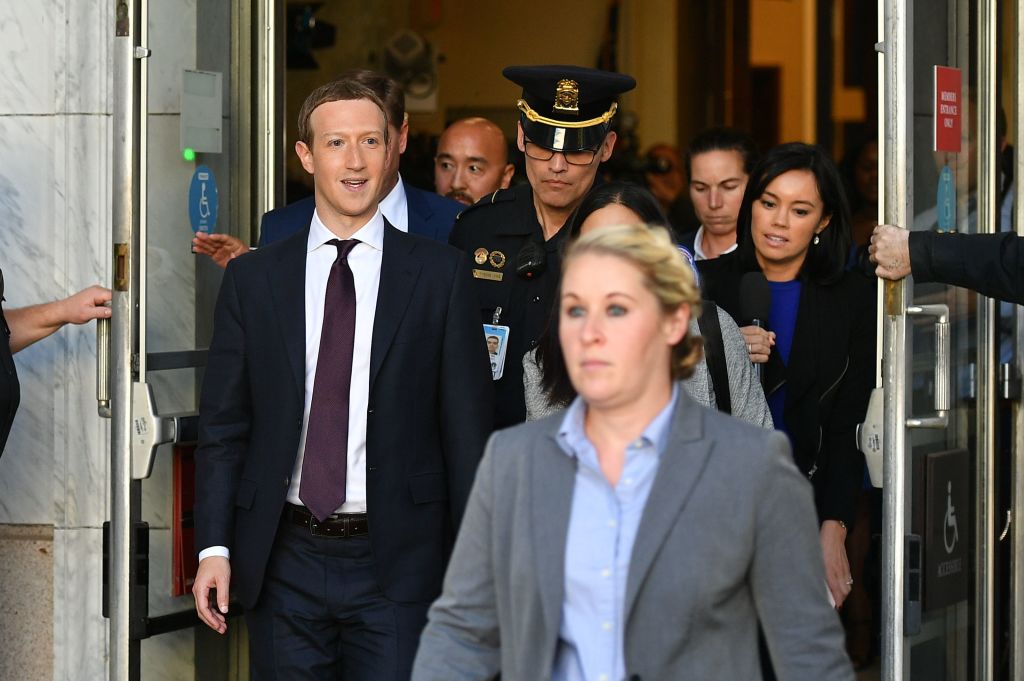Business groups blast new Ofcom powers to police social media

Business groups have hit out at Nicky Morgan’s plans to give Ofcom an expanded role in regulating the internet, calling the plan “unrealistic” and saying it would create “uncertainty”.
The culture secretary announced that the broadcast regulator would be beefed up to tackle social media firms over “online harms”.
Ofcom’s new role, first mooted in last July’s online harms legislation white paper, will see it place a legal “duty of care” on such companies to protect users from illegal content.
Morgan said: “With Ofcom at the helm of a proportionate and strong regulatory regime, we have an incredible opportunity to lead the world in building a thriving digital economy, driven by groundbreaking technology, that is trusted by and protects everyone in the UK.
“We will give the regulator the powers it needs to lead the fight for an internet that remains vibrant and open but with the protections, accountability and transparency people deserve.”
Home secretary Priti Patel added:
It is incumbent on tech firms to balance issues of privacy and technological advances with child protection.
That’s why it is right that we have a strong regulator to ensure social media firms fulfill their vital responsibility to vulnerable users.
But business and tech groups lashed out at the plan and said it was unworkable, and amounted to a threat to free speech.
Institute for Economic Affairs: This decision ‘threatens fundamental rights’
The Institute for Economic Affairs’ head of regulatory affairs, Victoria Hewson, criticised the plan, saying it would create “red tape”:
“At a time when the chancellor is challenging businesses to come up with ways of cutting red tape, it is disappointing to see other government departments intent on creating it.
“Everyone wants children and vulnerable people to be safe and terrorism to be tackled but handing power over what people are allowed to say and see online to a regulator is not a proportionate way to achieve this.
“The assertion that this development will “provide the certainty that business needs to flourish and innovate” is dubious. As we have seen with other recent interventions in the digital sector like the GDPR, legislators massively underestimated the costs of implementation and the impact on competition and innovation has been serious.
“A vague duty on Ofcom to ‘pay due regard to safeguarding free speech’ offers little consolation, and giving such powers to an independent regulator, with no clarity as to how its decisions can be appealed and challenged, threatens fundamental rights and the rule of law.”
Coalition for a Digital Economy: ‘These plans simply won’t work’
Dom Hallas, executive director of the Coalition for a Digital Economy (Coadec), said: “Startups rely on an internet where users feel safe, but these plans simply won’t work.”
“The proposals ask British startups to police legal content and then find themselves punished when they make mistakes. It is a confusing minefield that can only benefit big companies with the resources and armies of lawyers to comply.

“This will not be resolved until the Government draws a clear distinction between legal and illegal content. The scope of the plans remain simply unrealistic.”
DCMS select committee: ‘Lack of urgency’
Julian Knight, the chair-elect of the parliamentary digital select committee, added his voice to the chorus of critics:
“The DCMS Committee in the last parliament led calls for urgent legislation to prevent tech companies walking away from their responsibilities to tackle harmful content on their sites. Today’s statement fails to demonstrate the urgency that is required.
“We called for the new regulator to be completely independent from Government which is why we demanded a right of veto over the appointment.
“I would expect the DCMS Committee to be given the opportunity to scrutinise all aspects of the forthcoming Bill before it becomes law.”
Sign up to City A.M.’s Midday Update newsletter, delivered to your inbox every lunchtime
Adam Smith Institute: ‘No-one should have power to censor legal speech’
Matthew Lesh, Head of Research at the Adam Smith Institute, said the government should “be wary” of giving Ofcom extra powers:
“The government is right to back down from broad brush censorship of the internet in favour of tackling criminals online but there remain grave concerns for all of us. The government has not stated what content is and is not in scope and what powers this regulator will have and it remains unclear how freedom of expression will be protected.
“We should be wary about giving Ofcom the extraordinary power to decide what speech is and is not allowable on hundreds of thousands of websites. Any speech that is legal to say offline should also be legal to say online – in a free country no-one should have the power to force anyone to censor legal speech.”
CBI: Ofcom ‘should get tools it needs to succeed’
Others welcomed the decision, including the CBI, which had lobbied for Ofcom to become the regulator. Felicity Burch, the CBI’s director of digital and innovation, said:
“Effective regulation can play a leading role in tackling online harm and building trust in technology. This initial response achieves a good balance between ensuring safety and enabling business growth.

“In particular, we welcome an expanded role for Ofcom as the new regulator – something the CBI called for – and it should be given the tools it needs to succeed. Alongside this it’s great the government has increased its focus on education and innovation.”
Facebook: ‘New rules are needed’
Facebook, one of the companies that could be most affected by the announcement, also backed the government. Rebecca Stimson, the tech giant’s head of UK public policy, said:
“Facebook has long called for new regulations to set high standards across the internet. New rules are needed so that we have a more common approach across platforms and private companies aren’t making so many important decisions alone.
“This is a complex challenge as any new rules need to protect people from harm without undermining freedom of expression or the incredible benefits the internet has brought.
“We look forward to carrying on the discussion with government, parliament and the rest of the industry as this process continues.”
The Financial Times first reported Morgan’s plans, which follow last year’s consultations on online harms.